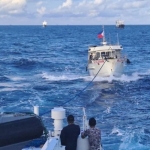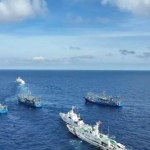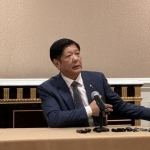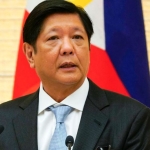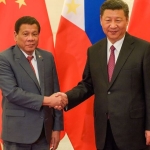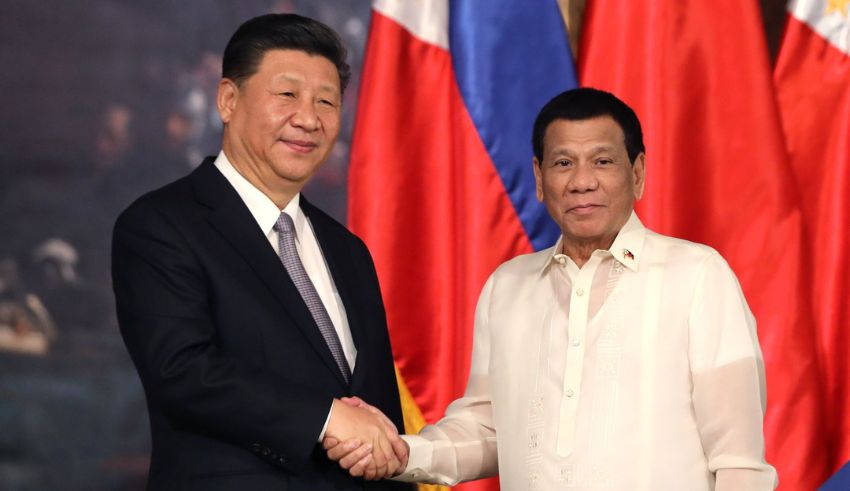
When Rodrigo Duterte took office as president of the Philippines in 2016, he pledged to turn the country’s foreign policy away from the United States and toward China and Russia. His pro-China stance was typified by efforts to win over Beijing, but the outcomes fell short of his expectations. The reasons Duterte’s China-friendly policy has failed as his tenure comes to an end are numerous.
The Delusion of Expectations
Improving relations with China would have major benefits, Duterte believed. China’s Belt and Road Initiative was to back his massive infrastructure project, “Build! Build! Build!” and he envisioned cooperative exploration agreements in disputed South China Sea (known as the West Philippine Sea in Manila). In the meanwhile, realities fell short of these hopes. When none of these deals came to pass, Duterte was left feeling let down and with unmet expectations. The expected inflow of Chinese capital and financial support did not come to pass to the extent that Duterte had anticipated. The real benefits were yet elusive after several high-profile meetings and agreements, highlighting the gap between official promises and actual performance.
The Assertiveness and Failed Hopes of China
Chinese action in the South China Sea makes things more difficult. China has been impeding Philippine infrastructure improvements by encircling Thitu Island, also called Pag-asa, with hundreds of militia vessels in recent years. China also moored hundreds of fishing boats in the contested Whitsun Reef and allowed its coast guard permission to shoot upon foreign ships. Along with damaging Duterte’s pro-China position, these aggressive moves strengthened nationalistic feelings in the Philippines. The political opposition and general people in the Philippines fiercely condemned the Chinese actions in the disputed waters, considering them as an apparent breach of national sovereignty. Reaching out to Washington was growing more tempting since the US was considered as a counterweight to China’s regional domination.
A Modification of Path
Duterte has switched things up as his time approaches to a conclusion. Rebuilding trust and discouraging Beijing, the Philippines has aggressively rebuilt security relations with the US. Important measures include conducting cooperative military drills, defence agreements, backing of the AUKUS security pact, and high-level visits. Duterte’s 180 degree turn around is a practical reaction to China’s operations and a reinforced commitment to the US. Reviving the Enhanced Defense Cooperation Agreement (EDCA), military support was made easier and U.S. forces may be stationed in the Philippines more frequently. With renewed vigor, joint exercises like the Balikatan drills suggested a strong defensive posture. This symbolic as well as strategic return to the United States was designed to take advantage of American military and economic aid in the face of escalating regional tensions.
Keep Reading
Influence of Locsin
Secretary of Foreign Affairs Teodoro Locsin Jr. was mostly in charge of this shift. His contradicting voice inside the Cabinet allowed him to publicly attack China. Locsin’s assertiveness halted China’s attempts to explore for oil and gas in the Philippine Exclusive Economic Zone (EEZ). Because Duterte led with a detached attitude, Locsin was able to work independently and seized the opportunity to realign Philippine foreign policy. Among the diplomatic moves Locsin made were to establish contacts with other ASEAN members, such as Australia and Japan, and to lodge several diplomatic protests against China’s actions. His aggressive diplomacy aimed to broaden the Philippines’ foreign policy portfolio and reduce excessive reliance on any one nation.
Spending at Home and Public Opinion
Duterte’s pro-China approach ran afoul of domestic politics as well. Historical links and a broad distrust of China’s intentions maintained Philippine public opinion firmly pro-American. Surveys after survey showed that Americans rated their trustworthiness higher than did Chinese citizens. Apart from being a failure for foreign policy, Duterte’s China policy was perceived to be a domestic political issue. It gave his critics and the opposition ammunition, and they used public unhappiness to push a return to more traditional partnerships.
End Notes
The practical need to realign with the US, China’s aggression, and unmet promises finally caused Duterte’s pro-China policy to fail. Still one of the main challenges the Philippines faces in the post-Duterte period is the delicate balance between regional powers. Leading priorities for the new government will be handling international relations, protecting sovereignty, and making economic gains in a complex geopolitical climate. An enlightening lesson on the advantages and disadvantages of shifting alliances in a dynamic regional environment is provided by the Duterte era experience. To negotiate a world growing more and more multipolar, the Philippines must carefully balance its strategic goals with its partnerships.
